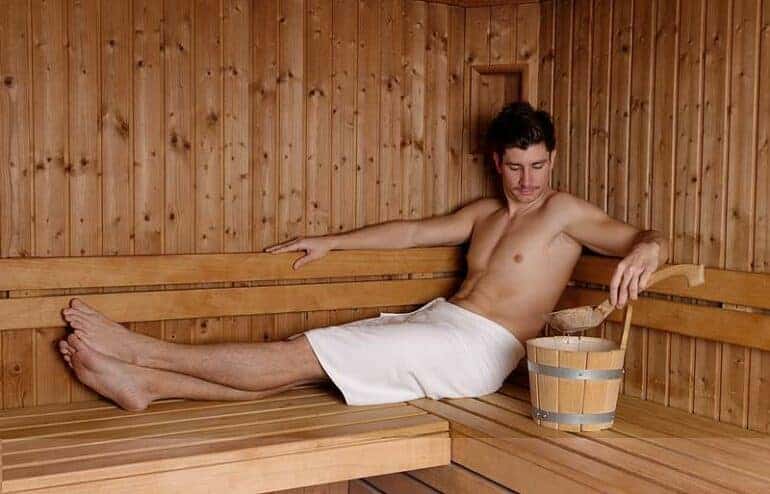How does sauna affect hair loss, dandruff and dry hair?
During a sauna session, the high temperature intensively heats both the skin and the hair. This may cause the hair structure and scalp to be temporarily affected. In the following, we will go into the various aspects.
Can a sauna session cause hair loss?
A direct link between sauna visits and hair loss has not yet been proven. According to experts and studies, such as a study by the Harvard Medical School, there is no scientific evidence that sauna sessions cause hair loss. In fact, saunas can even have a positive effect on blood circulation and scalp regeneration, which in turn supports hair growth.
However, it is important to note that everyone reacts differently to environmental factors. For some people, the heat in the sauna could irritate the scalp and lead to increased sebum production, which can contribute to hair loss. In such cases, it is advisable to reduce the sauna frequency or switch to a gentler form of heat treatment, such as steam baths.
Does sauna dry out your hair?
The high temperature in the sauna can cause the hair and scalp to dry out. However, this depends on the individual hair structure, sauna duration and frequency of sauna sessions. To counteract drying, it is recommended to rinse the hair thoroughly with lukewarm water before and after the sauna session and then apply a moisturizing treatment, such as a hair mask or hair oil.
In addition, it can be helpful to cover the hair during the sauna session with a towel or with a sauna hat (at Amazon) to protect them from direct heat.
Do saunas cause more dandruff?
The formation of dandruff is influenced by various factors, such as a dry scalp, excessive sebum production or a fungal infection. Since the sauna stimulates sebum production and blood flow to the scalp, this can lead to an increase in dandruff in some people. However, if you shower regularly and take proper care of your hair, then you should not have any problems with dandruff.
To prevent dandruff, use a mild, pH-neutral shampoo after your sauna session and gently massage the scalp. In addition, the use of special anti-dandruff shampoos or hair tonics can help restore the balance of the scalp.
Do sauna sessions cause more split ends?
Split ends are caused by damage to the ends of the hair and can be caused by various factors such as heat, mechanical stress or chemical treatments. Whether sauna visits can lead to increased split ends depends on the individual hair structure and the frequency of sauna sessions. However, the high temperatures in the sauna can temporarily make hair more brittle and dry, which can increase the risk of split ends.
To counteract this, it is recommended to take good care of the hair before and after the sauna session and, if necessary, use special products such as hair oils (at Amazon) or heat protection sprays. Wearing a sauna cap or towel can also help protect hair from direct heat and reduce the risk of split ends.
Conclusion: Sauna sessions and their effects on hair and scalp
In summary, sauna sessions generally have no negative effects on hair and scalp, as long as they are enjoyed in moderation and with individual needs in mind. It is important to listen to your body’s signals and adjust your sauna habits accordingly. By caring for and protecting your hair and scalp, you can enjoy the beneficial effects of the sauna without fear of negative consequences for your hair.

